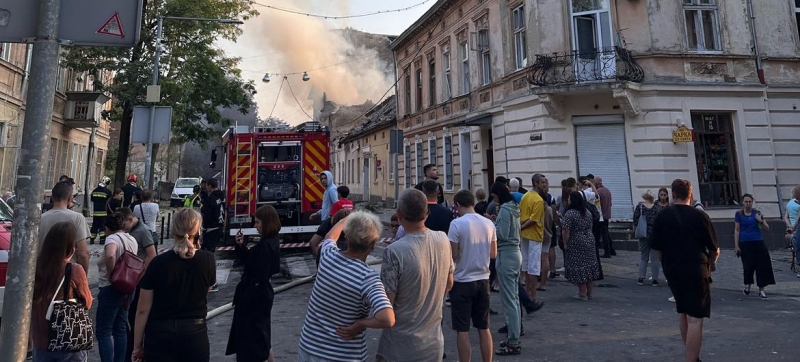
Lviv after shelling INTERVIEW | What’s happening in Lviv after the recent airstrike? Peace and Security
UN aid workers continue to provide aid to residents of Lviv affected by an airstrike that killed at least seven people on Wednesday. In an interview with UN News Service, Nienke Woppen, who works at the UNICEF office in Lviv, described what is happening in the large city in the west of the country.
Nienke Woppen: In Lviv, where I am and where we have our office, yesterday morning we witnessed a powerful strike that left 66 people injured, including ten children, and seven dead. It was the largest attack in living memory in western Ukraine. Schools, medical facilities and residential buildings were damaged.
UNICEF immediately began providing assistance to the victims. Within hours of the attack, we were distributing tarpaulins and protective film to schools and a hospital to cover the windows, because many of them were broken. The same in residential buildings. Our mobile teams went to the scene and provided assistance to families, including, for example, a child who had lost his mother and was desperately looking for her on that terrible morning. Overall, yesterday was a very tense day in Lviv.
And all this while evacuation trains continue to arrive from the east. Our teams also provide support to families during the evacuation. We help them with the things they need on the road. We provide support in integrating these families in western Ukraine. For example, we help children enroll in local schools, provide them with access to social services, to a child psychologist, to medical workers if they need it.
UN News Service: Are you aware of any cases where people who came from the east seeking refuge were affected by yesterday’s explosions?
NV: As far as I know, there are none. We know that seven people were killed, but I think they were all local residents. I know for sure that at least four of them were residents of Lviv. The other three are unknown to me. I know that 66 people were injured, and that is quite a lot. They are all receiving medical care. The city provided support to these families very quickly. Many humanitarian organizations, including UNICEF and partners, immediately came to help.
UN News Service: What is the situation in Lviv now?
NV: Life goes on, but there is a general anxiety, people cannot believe that there was an attack on residential areas. Children were unable to go to school this morning and may not be able to attend school in person for the next few weeks or even months because schools need to be repaired. This is having a direct impact on children’s lives. They don’t feel safe going to bed. No child should have to go to bed like that.
UN News Service: This is a relatively new feeling in Lviv, right? The city hasn’t seen such a major attack like this before.
NV: Yes, Lviv has never seen such major incidents before. People fleeing from the east and south considered it a safe zone. Yesterday’s attack once again demonstrated that in the conditions of the ongoing war, no place in the country can be considered safe. Children remain in danger at any point.
UN News Service: You mentioned that UNICEF is prepared for such attacks. But is Lviv prepared for such attacks in terms of having enough shelters??
NV: Yes. There are many shelters in the city and the region, for example, social centers. When the full-scale war began, some of them were closed, but they can easily be reopened in the event of major attacks or an influx of people evacuating from the east. There are also mobile shelters that can be used to accommodate newly displaced people from the east or after an attack when residential buildings are damaged. Humanitarian partners, including UNICEF, are supporting these sites to ensure they remain safe places for people to live, with clean water, electricity and heating in the winter.
UN News Service: Are the schools open today?
NV: Those schools that were hit by the strike were closed. The damaged schools are unable to provide in-person education. The rest of the schools are operating as usual.
